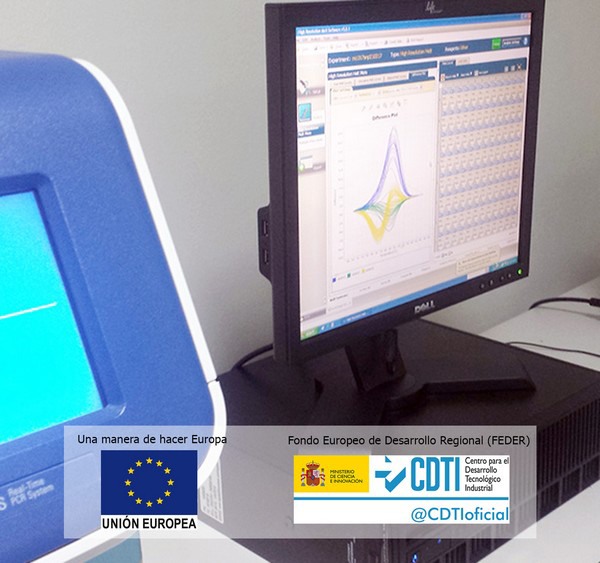The development activities of the Melonseeds R&D project have already begun. The purpose of this project is to generate advanced melon lines with resistance to different plant pathogens that affect negatively the quality and crop productivity. Under the title “Breeding program for introgression resistance to pathogens into Piel de Sapo, Yellow and Branco melon types”, this project aims to improve elite melon accessions of Intersemillas, Piel de Sapo and Yellow types (obtained by breeding programs developed previously), through introducing new resistances.
In addition, a breeding program will be carried out on the introduction of basic resistances in Branco melon type to respond the market demand. Intersemillas S.A. develops this project in the facilities of its R&D center Inveseed, located in Quart de Poblet (Valencia). Dr. María Belén Picó, who leads the Cucurbits genetics group in the Institute for the Conservation and Breeding of Agricultural Biodiversity at Universitat Politécnica de Valéncia, Dr. Ana María Pérez de Castro also belonging at the same group and Dr. Antonio Jose Monforte from Instituto de Biología Molecular y Celular de Plantas, Universitat Politècnica de València (IBMCP-CSIC-UPV), collaborate in this project.
The project has a budget of more than € 500,000, co-financed by the Center for Industrial Technological Development (CDTI) with FEDER funds from the European Union.
From a strategic point of view, this project will be an important boost to place Intersemillas at the forefront of the achievement of new varieties of melon.
Relevance of the crop and origin of the problem
Melon is an economically significant crop species for Mediterranean countries, and Spain is one of the largest producers and exporters of melon in the world. In addition to its economic value, melon is an extremely important crop with respect to its social relevance in Spain, since it is one of the fruits most appreciated and valued by consumers for its organoleptic quality.

Due to global climate change, the increasing water resources shortage and the soil overuse in many regions, biotic and abiotic stress problems associated with soil conditions are increasing alarmingly. In this context, melon production is threatened by multiple pathogens, continually facing new challenges. Nowadays, population is beginning to become aware of these changes, and the trend is moving towards a more sustainable agriculture, more environmentally friendly. Therefore, the tendency is to use authorized ecological products for plant protection instead fungi and pests (which are vectors of many viruses) and the incorporation of resistance into cultivated varieties.
The success of genetic improvement consists in obtaining resistant melon varieties where the quality of the fruits is the main point, therefore, the introduction of resistance genes must be done without forgetting the quality.
In a breeding program, it is very important to get a wide range of genetic resources available for its introgression into the desired crops. In this regard, the species Cucumis melo (melon scientific name ) includes both wild and cultivated types, and shows great variability in characters related to fruit quality (climacteric character, organoleptic characteristics, sweetness ...) and traits related to resistance to certain pathogens like fungi and viruses. Melon diversity supposes an advantage in the approach for a breeding program.
In the last decade, given the scientific and economic interest of melon, a considerable number of genetic and molecular tools have been developed. Numerous sequences have also been cloned, described, and annotated, and sequencing of the melon genome has been completed. Therefore, currently, genetic improvement in melon is a combination of traditional genetic improvement with molecular genetic enhancement (by early selection with molecular markers), which increases the efficiency and speed of improvement programs.
For more information:
María Gómez Martín
Intersemillas
Tel: +34 648 790 059
Email: mariagomez@intersemillas.es
